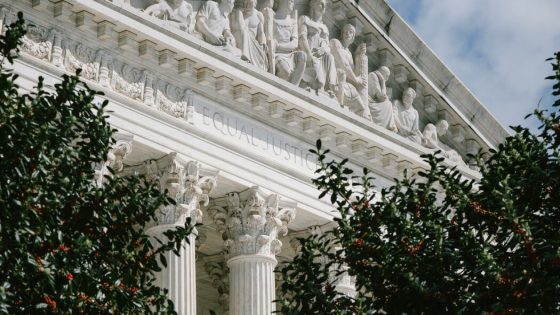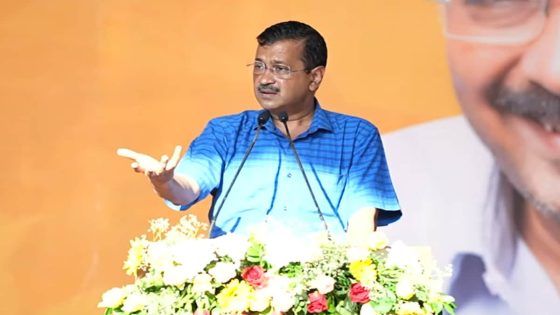The Supreme Court seemed ready on Monday to limit the reach of a federal statute that makes it a crime for state and local officials, along with institutions that receive federal money, to accept gifts and payments meant to influence or reward their actions.
In a lively argument studded with hypothetical questions about gifts as varied as cookies, Starbucks gift cards, meals at the Cheesecake Factory and 10-figure donations to hospitals, a majority of the justices seemed persuaded that the government’s interpretation of the law was too broad.
Before the argument, Chief Justice John G. Roberts Jr. announced that Justice Clarence Thomas would be absent but would participate in the case by reading the briefs and the transcript of the argument. The chief justice did not say why.
The case concerned James Snyder, who was mayor of Portage, Ind., along Lake Michigan, when the city bought garbage trucks from a local company under a bidding process that prosecutors said had been manipulated to ensure the company prevailed. After the process was complete, the company paid Mr. Snyder $13,000 for what he later said were consulting services.
Prosecutors charged Mr. Snyder with violating the federal law, which covers anyone “who solicits or demands for the benefit of any person, or accepts or agrees to accept, anything of value from any person, intending to be influenced or rewarded.” He was found guilty in March 2021 and sentenced to 21 months in prison.
The question for the justices was whether the law applies only to before-the-fact bribes or also to after-the-fact gratuities.
Lisa S. Blatt, a lawyer for Mr. Snyder, warned the justices that a broad reading of the law would turn routine gifts into crimes backed by 10-year prison sentences. She added that it was impossible to draw a workable line between prohibited gifts and permissible ones.
“I don’t know where on the Harry & David menu the gift becomes corrupt,” she said, referring to the retailer known for its fruit baskets.
Along the same lines, under the government’s theory, she said, the gift of a meal at Chipotle was probably permissible, while one at the Inn at Little Washington, an expensive restaurant in Virginia, would not be. The hard question, she said, suggesting that the line-drawing exercise was absurd, was the Cheesecake Factory.
Justice Sonia Sotomayor noted that the law requires that the payment be made in connection with actions worth at least $5,000. Ms. Blatt said that amount was easily satisfied.
“The doctor who removes your wart, fine,” she said, indicating that such a procedure may not meet the threshold. “But the doctor who takes your gallbladder out or does your face, like my plastic surgeon, no, that’s worth over $5,000.”
Colleen R. Sinzdak, a lawyer for the federal government, said the anti-corruption law was not concerned with “innocuous gift-giving activity that occurs in the ordinary course of business.”
Better hypothetical examples, she said, were demands from a police chief for $10,000 payment after his officers foiled a burglary or a request for $30,000 from a safety inspector after he issued a permit for a dangerous project. She argued that Mr. Snyder’s case was along those lines.
Justice Brett M. Kavanaugh agreed that “the facts of this case are great” for the government’s interpretation of the law. But he added that the court must decide how it should apply in other cases.
Justice Elena Kagan echoed the point. “This statute applies not just to government officials but to pretty much, like, every important institution in America,” she said, asking about a hypothetical hospital that provides a billionaire with special treatment in hopes of receiving a big contribution.
“That would land you 10 years in prison?” she asked.
Ms. Sindzak said the government would not bring questionable cases. Chief Justice Roberts responded that “we don’t rely on the good faith of the prosecutors in deciding cases like this.”
In earlier rulings, the court has interpreted anti-corruption laws narrowly.
Last year, the court threw out two fraud convictions involving accusations of bid-rigging and illicit payments during the administration of Gov. Andrew M. Cuomo, a New York Democrat.
In 2020, the court unanimously overturned the convictions of two defendants in the so-called Bridgegate scandal, in which associates of Chris Christie, a Republican who was the governor of New Jersey, closed access lanes to the George Washington Bridge in 2013 to punish one of the governor’s political opponents. That was an abuse of power, the court ruled, but not a federal crime.
Similarly, the court in 2016 unanimously overturned the conviction of Bob McDonnell, a former governor of Virginia. Mr. McDonnell, a Republican, had accepted luxury products, loans and vacations from a business executive.
Source Agencies




